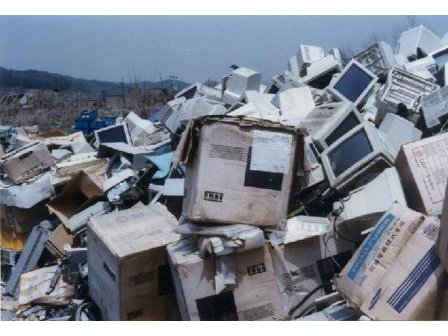Gartner: Power consumption tip of IT iceberg
374 million PCs will be sent to landfill in the next 5 years

Power consumption recently made headline news in the debate of 'green IT', but according to analyst Gartner , it's just the tip of a melting iceberg for an IT industry that is currently unsustainable.
"The IT industry must now look beyond the current power issue and pay greater attention to broader issues. These include limiting carbon and greenhouse gas emissions, using materials from renewable resources, recycling materials and reusing heat from data centres," said Steve Prentice, vice president and distinguished analyst at Gartner.
Speaking at the Gartner Symposium/ITxpo in Cannes, he said IT retailers need to evaluate how 'green' and sustainable their products and services are, from the point of manufacture to their disposal or recycling.
Gartner said that legislation is leading technology development for the first time. If the IT industry steps up to the challenge of leading instead of following regulation, it will be seen to be proactive, and therefore responsible, by buyers. This in turn will positively influence future legislation and buying trends.
'Thinking and acting green'
Organisations are challenged to 'think and act green', with the coupled benefit of thereby reducing costs.
"The vast majority of hardware devices have been designed to provide maximum functionality and performance, with little regard for wider environmental issues," said Rakesh Kumar, research vice president at Gartner.
"For example, traditional data centres typically waste more than 60 per cent of the energy they use to cool the equipment. Another frightening example relates to the disposal of PCs.
Sign up for breaking news, reviews, opinion, top tech deals, and more.
According to Gartner research, consumers and businesses will replace more than 800 million PCs worldwide in the next five years, of which an estimated 64 per cent (512 million) will be disposed. "73 per cent of those PCs will be consigned to landfill sites or stored, rather than recycled," he said.
Kumar added that this level of waste was not sustainable. "It is bad for the environment and bad for business. Enlightened consumers will increasingly vote with their wallets, choosing more sustainable products and services from suppliers with environmentally conscious corporate social responsibility programmes."
Forcing changes in IT industry
'Green' legislation is already forcing the IT industry to review and change its environmental responsibilities. The Waste of Electrical and Electronic Equipment (WEEE) directive, due to take effect in January 2007, imposes strict regulations on the way electrical equipment can be disposed.
Because the refresh cycle for IT hardware is getting shorter, users will have to dispose of more equipment in an environmentally friendly manner.
Also, the EU introduced the Restriction of Hazardous Substance (RoHS) directive on 1 July. This environmental legislation focuses on hazardous substances, such as mercury, cadmium and hexavalent chromium. It forces IT buyers to take greater environmental care in managing the total life cycle of their machines.
Gartner recommends IT retailers assess their current environmental policies and practices - particularly around greenhouse gas emissions, pollution and use of renewable resources - to ensure they not only meet current legislation, but can pass future, tougher legislation and closer scrutiny from environmentally aware buyers.